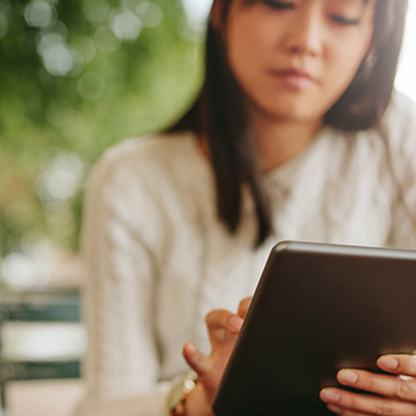Taking a break to head overseas is hugely exciting, but takes a lot of planning. We cover the essentials and the little things you may not have thought of:
Saving for your trip
Once you’ve decided on your destination, it’s time to start saving. Totting up the costs is a real eye-opener.
Spend Tracker & Insights is a tool in the CommBank app that automatically puts your transactions into categories such as groceries, cash and bills so you can see where you’re spending while you're trying to save.
One way to avoid scrimping on experiences when you’re overseas is to create a budget, then set a savings goal – it’s a great way to stay motivated to save.
How it works:
- Choose a savings goal then set up scheduled transfers into your savings account
- Track your progress towards your goal
- Top up your goal when you’ve got some extra cash
No matter how much you plan, there are bound to be costs you haven’t accounted for. So make sure you’ve got extra funds up your sleeve to cover unexpected expenses.
What to budget for
Flights, transport and accommodation: Likely to be your biggest costs; book early to get the best deal; try flight comparison and travel booking sites for specials.
If you’ve got some flexibility with your dates, consider travelling off-peak.
Food: Do some research to understand how much you should budget for. Look for hotel specials with breakfast included or accommodation with a kitchenette to save on food costs. Go where the locals go - it may be cheaper and tastier, too.
Keep in mind that in some countries, you’re expected to leave a tip.
Entertainment and shopping: Find out what tours and activities are available – you may get a discount for booking in advance.
Discover whether local taxes apply to purchases. If you’re travelling to Europe, some European Union (EU) countries allow you to claim back Value Added Tax (VAT) when you’re at the airport heading home. If you’re travelling to the US, don’t get caught out by the ‘hidden’ sales tax - it’s often charged, but rarely included on the price tag.
Internet access: Hotels may add an internet charge to your bill or limit the number of devices you can sync to the WiFi network for free. It's worth checking with them before you start posting photos, sharing status updates or trying to video call people back home.
Roaming, local SIM or cheap handset: If you’re taking your phone, ask your mobile provider about global roaming fees and charges. It may be cheaper to get a local SIM once you arrive (if your phone’s unlocked), or a cheap handset that includes one instead.
Visas, passports, vaccinations: Think about these well in advance. You’ll need a valid passport, with at least 6 months left from the date you arrive back in Australia before it expires, and may also need a visa.
Check with your doctor about vaccinations or medicines too.
Insurance: Your credit card may include travel insurance that you’ll need to activate before travelling, but if you don’t have an eligible card, you can look into buying a policy so you can tailor travel insurance to your specific needs.
Don’t forget to check you’ve got the right level of home and contents insurance, too, so you can have peace of mind that your belongings are protected while you’re away.
Take a look at our travel checklist for more.
Paying for things
Consider taking a mix of cash, a Travel Money Card, debit and credit cards to give you some flexibility when it comes to paying for things, as well as a back-up if anything gets stolen or lost.
It goes without saying that the time to buy foreign cash and load currency onto your Travel Money Card is when the exchange rate is in your favour. It can change significantly in a short amount of time, so watching it long before you go can be helpful.
If you’ve got a CommBank Awards credit card, take a look at our CommBank Awards program. You can use your Awards Points to book things like flights, hotels, car hire, cruises and holiday packages, and get your holiday wardrobe sorted too.
Or, if you’re strapped for cash and heading off on a once-in-a-lifetime trip, you may want to look into getting a personal loan.
The week before you go
Your mind may be focused on packing, but make the time to register your trip with Smartraveller. Not only will this give you the latest travel advice, but it makes it easier to get Australian consular help in an emergency too.
Remember to log on to NetBank or the CommBank app if you're a CommBank customer and tell us when and where you’re going. We can keep an eye out for any suspicious activity on your accounts and credit cards while you’re away.
When you’re overseas
So long as you’ve got internet access, you can log on to NetBank and the CommBank app from anywhere in the world.
Not only can you manage your money on-the-go, you can also reload your Travel Money Card in NetBank and the CommBank app if a currency is running low.
CommBank emergency details
- Lock, Block, Limit your CommBank credit card or lock your Travel Money Card for added security
- Cancel and order replacement CommBank cards in NetBank or the CommBank app
- Call us on +61 2 9999 3283 to report lost or stolen CommBank cards
For 24-hour travel insurance emergency assistance, call Cover-More in Australia direct and toll free on +61 2 8907 5641. You can also call from:
- Canada on 1844 345 1662
- New Zealand on 0800 632 031
- UK on 0808 234 3737
- USA on 1844 345 1662
Charges apply if calling from a pay phone or a mobile phone.




